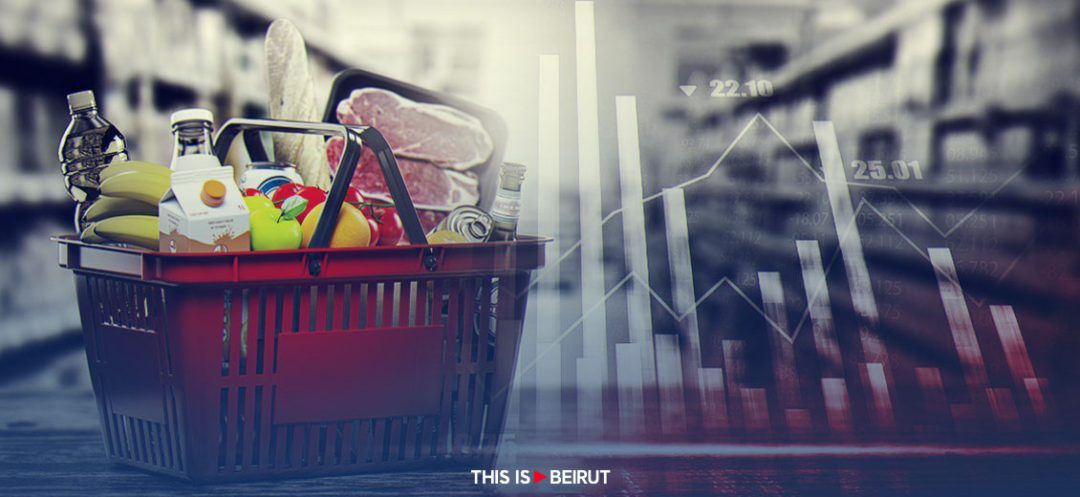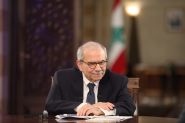
The destiny of the Finance Law remains uncertain. Every budgetary article voted by Parliament is subject to invalidation appeal before the Constitutional Council once the text is promulgated and published in the Official Gazette.
Before the final version of the 2024 budget was released, an outcry erupted over an article that was introduced during the budget voting session in Parliament. This article was spearheaded by MP Wael Abou Faour of the Democratic Gathering (Progressive Socialist Party-PSP) and imposes “an exceptional 10% tax” on businesses and traders who have used dollars originally intended to fund the importation of subsidized products in their purchases. It is worth noting that the subsidy policy has been abolished for over a year and a half.
According to multiple trustworthy parliamentary sources, the proposal for the “exceptional tax” was introduced during the final quarter of the budget debate, even though the elected representatives (MPs) had previously approved the draft budget article by article.
Moreover, the approval of this proposal occurred “hastily and impulsively” at the end of the voting session, amid the usual uproar that marks budgetary debates chaired by Parliament Speaker Nabih Berri. The latter is known for his unique course of action that consists in considering votes as “acquired,” without even looking at the audience. He is thus famous for his “souddeq” (voted), which is accentuated by the traditional gavel strike, delivered even before MPs have the chance to raise their arms in acquiescence.
Smuggling
The problem is how to determine which parties have actually taken advantage of the “subsidy dollars.” Is it the final consumer, the importing companies or someone else?
Several businesses that were operating in accordance with applicable laws have now found themselves accused of subsidy squandering, even as it is widely acknowledged that subsidized products were extensively smuggled into Syria, a neighboring country with a porous 375-kilometer border with Lebanon. How can we retrieve all the money taken out of the national territory?
Added to this are two additional uncertainties: the quantification of dollars earmarked under the subsidy policy and the number of entities that have benefited, with no data provided by the Central Bank of Lebanon (BDL).
Abou Faour’s Reasoning
MP Wael Abou Faour contends that this is “a tax, not the recovery of subsidized funds.” In his argument, he highlights that “certain commercial agents managed to transfer their funds out of Lebanon through subsidized product import operations.” He also argues that these individuals took advantage of “preferential treatment in exceptional circumstances, using depositors' money, even though such behavior was authorized by the State.”
This reasoning makes sense, but it requires more detailed elaboration, especially in determining the businesses that resorted to this process. From this juncture, everything will depend on the application decrees that the caretaker Minister of Finance has the discretion to either adopt or abstain from.
A Subsidy Not That Simple
As for traders, those who were interviewed by This Is Beirut did not hold back in their comments. They denounced a “racketeering,” an “unreasonable improvisation,” “chaos” and “populism” orchestrated by the State.
They mentioned a specific mechanism for subsidizing certain imported products, contending that it enabled the BDL to manage the allocation of “subsidy dollars.”
In practice, subsidized purchases are executed through direct transfers facilitated by the BDL. As per statements from interviewed traders, the dollars allocated for these transactions directly reach international suppliers. They asserted that not one cent enters their bank accounts, as they channel the amounts designated for imports in Lebanese pounds to the Central Bank of Lebanon, which then converts them into dollars.
An issue worth monitoring closely.
Before the final version of the 2024 budget was released, an outcry erupted over an article that was introduced during the budget voting session in Parliament. This article was spearheaded by MP Wael Abou Faour of the Democratic Gathering (Progressive Socialist Party-PSP) and imposes “an exceptional 10% tax” on businesses and traders who have used dollars originally intended to fund the importation of subsidized products in their purchases. It is worth noting that the subsidy policy has been abolished for over a year and a half.
According to multiple trustworthy parliamentary sources, the proposal for the “exceptional tax” was introduced during the final quarter of the budget debate, even though the elected representatives (MPs) had previously approved the draft budget article by article.
Moreover, the approval of this proposal occurred “hastily and impulsively” at the end of the voting session, amid the usual uproar that marks budgetary debates chaired by Parliament Speaker Nabih Berri. The latter is known for his unique course of action that consists in considering votes as “acquired,” without even looking at the audience. He is thus famous for his “souddeq” (voted), which is accentuated by the traditional gavel strike, delivered even before MPs have the chance to raise their arms in acquiescence.
Smuggling
The problem is how to determine which parties have actually taken advantage of the “subsidy dollars.” Is it the final consumer, the importing companies or someone else?
Several businesses that were operating in accordance with applicable laws have now found themselves accused of subsidy squandering, even as it is widely acknowledged that subsidized products were extensively smuggled into Syria, a neighboring country with a porous 375-kilometer border with Lebanon. How can we retrieve all the money taken out of the national territory?
Added to this are two additional uncertainties: the quantification of dollars earmarked under the subsidy policy and the number of entities that have benefited, with no data provided by the Central Bank of Lebanon (BDL).
Abou Faour’s Reasoning
MP Wael Abou Faour contends that this is “a tax, not the recovery of subsidized funds.” In his argument, he highlights that “certain commercial agents managed to transfer their funds out of Lebanon through subsidized product import operations.” He also argues that these individuals took advantage of “preferential treatment in exceptional circumstances, using depositors' money, even though such behavior was authorized by the State.”
This reasoning makes sense, but it requires more detailed elaboration, especially in determining the businesses that resorted to this process. From this juncture, everything will depend on the application decrees that the caretaker Minister of Finance has the discretion to either adopt or abstain from.
A Subsidy Not That Simple
As for traders, those who were interviewed by This Is Beirut did not hold back in their comments. They denounced a “racketeering,” an “unreasonable improvisation,” “chaos” and “populism” orchestrated by the State.
They mentioned a specific mechanism for subsidizing certain imported products, contending that it enabled the BDL to manage the allocation of “subsidy dollars.”
In practice, subsidized purchases are executed through direct transfers facilitated by the BDL. As per statements from interviewed traders, the dollars allocated for these transactions directly reach international suppliers. They asserted that not one cent enters their bank accounts, as they channel the amounts designated for imports in Lebanese pounds to the Central Bank of Lebanon, which then converts them into dollars.
An issue worth monitoring closely.
Read more




Comments